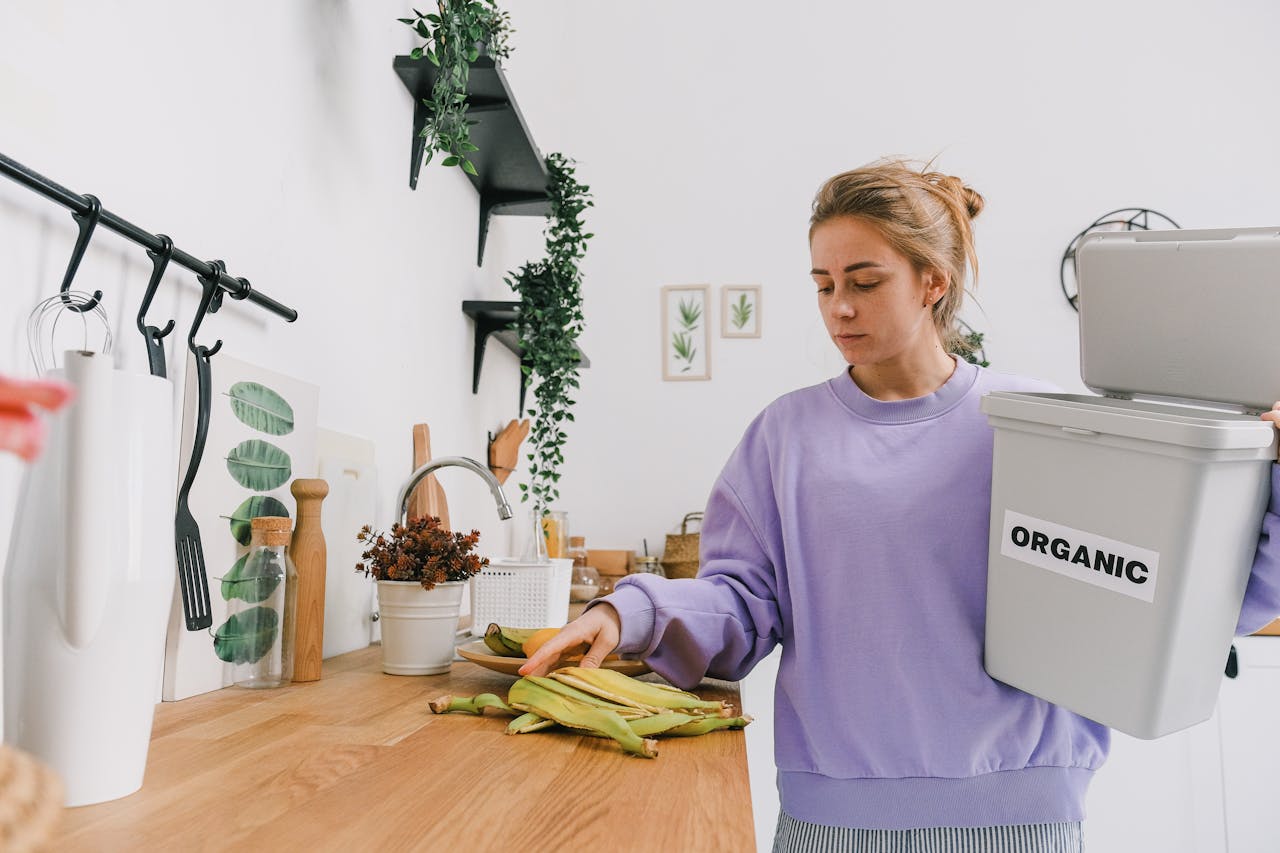If you’ve ever paused before discarding a banana peel or coffee grounds, pondering whether there’s a better place for them than the trash bin, you’re not alone. More and more, individuals and communities are recognizing the importance of reducing food waste and embracing methods like composting to recycle organic kitchen scraps into soil-enriching materials. In fact, composting is a remarkably effective method for recycling organic waste and contributes significantly to waste reduction efforts and soil health. Let’s delve deeper into this topic.
Understanding the Composting Process
Before diving into the process of composting, it’s essential to understand what it entails. Essentially, composting is the process of transforming organic material, think kitchen scraps or garden waste, into a nutrient-rich soil conditioner. This process involves the decomposition of these materials by microorganisms, yielding a humus-like end product that can be used to enhance soil fertility and stimulate plant growth.
Also to discover : What is the best material for heat-resistant kitchen gloves?
Your kitchen waste typically contains a wealth of organic materials that are ideal for the composting process. These may include fruit and vegetable scraps, coffee grounds, tea bags, eggshells, and more. These materials are rich in nutrients and make a valuable addition to your compost bin.
Composting not only helps reduce the amount of waste that ends up in landfills, but also enriches the soil in your garden, promoting healthier plant growth. Additionally, compost can help improve soil structure, enhance water retention, and even ward off plant diseases.
Also read : What is the best material for heat-resistant kitchen gloves?
Getting Started with Your Compost Bin
Setting up your compost bin is a straightforward task. You can purchase a ready-made compost bin from a garden store or online, or you can choose to build your own. It’s important to place your compost bin in a location that is convenient for you, but also suitable for composting. A shady spot in your yard that is easily accessible will work well.
Once your compost bin is set up, you can start adding your kitchen waste to it. However, not all kitchen waste is compostable. Avoid adding meat, dairy products, and fatty or oily foods to your compost bin as they can attract pests. You can also mix in some garden waste like grass clippings, leaves, and small branches to help balance out the compost pile.
When adding materials to your compost bin, aim for a balance between green waste (like vegetable scraps and coffee grounds) and brown waste (such as leaves and branches). This balance helps to maintain the right moisture and heat levels necessary for the composting process.
Community Composting Programs
Not everyone has the space or capability to compost at home. If you are in this boat, worry not. Community composting programs are an excellent alternative. These programs collect organic waste from residents and compost it in a central location. They can handle larger quantities of compostable materials, and the finished compost is often made available to participants or used in community gardens.
To participate, you can collect your kitchen waste in a compostable bag or container and drop it off at a designated collection point. These programs are a great way to reduce waste and contribute to your local community’s greening efforts. They also help educate the public about the importance of composting and recycling.
The Impact of Recycling Kitchen Waste
The benefits of recycling kitchen waste extend beyond your backyard. Globally, food waste is a significant issue. According to the United Nations, approximately one-third of all food produced globally is wasted. Composting helps address this problem by converting waste into valuable resources.
Recycling kitchen waste through composting also has positive effects on the environment. It reduces the amount of methane, a potent greenhouse gas, produced when organic waste decomposes in landfills. Furthermore, composted waste serves as a natural fertilizer, reducing reliance on chemical fertilizers that can harm waterways and biodiversity.
In conclusion, recycling kitchen waste through composting is an effective way to reduce waste and contribute to a more sustainable future. It is a practice that you can adopt at home, or as part of a community, to make a positive impact on the environment and soil health.
Impact of Food Service Industry on Composting
The food service industry plays a crucial role in managing food waste effectively. Restaurants, caterers, and other food-related businesses generate a substantial amount of organic waste daily. This waste can be recycled in a sustainable way, contributing to waste reduction and promoting overall environmental health. The best practices within the food service industry include segregating waste, using organics collection programs, and educating staff about waste management.
Commercial kitchens often generate a variety of food scraps, from vegetable peels to coffee grounds. Segregating this waste is the first step towards effective waste management. Installing separate bins for food scraps can make a significant difference in the way waste is handled. Also, educating staff about the importance of segregation and how to identify compostable waste can greatly enhance waste management efforts.
Many cities and municipalities offer organics collection programs specifically designed for businesses. These programs provide businesses with a dedicated organics cart or dumpster where they can dispose of their food waste. The collected waste is then composted in a commercial facility. Participating in these programs not only helps businesses reduce their waste, but also supports local waste management efforts.
Training is crucial in the food service industry, not only in food preparation and service but also in waste management. Providing staff with regular training sessions on best practices for recycling kitchen waste can reduce food waste, save money, and minimize environmental impact. This gives them the knowledge and tools they need to contribute to sustainability efforts effectively.
The Future of Kitchen Waste Recycling
The future of kitchen waste recycling looks promising, with more and more people becoming aware of the importance of composting and waste management. Advances in technology are making it easier than ever to recycle kitchen waste at home or as part of a community.
Curbside collection programs are becoming more common, allowing homeowners to easily dispose of their food waste in organics carts. This not only makes it easier to compost, but also reduces the amount of waste that ends up in landfills.
Technological advancements are also making composting more accessible. For instance, automated compost bins that can fit in your kitchen and turn your food scraps into compost in just a few hours are now available on the market. These bins are designed to be odor-free and pest-resistant, making composting a hassle-free process.
In conclusion, recycling kitchen waste is a practice that everyone can adopt to help reduce food waste and the greenhouse gas emissions associated with landfill decomposition. As we look to the future, it’s clear that composting and related waste management methods will become an increasingly important part of our efforts to create a more sustainable world. Whether you choose to compost at home, participate in a community collection program, or implement best practices in a food service setting, each step will help in making a significant positive impact on our environment.






